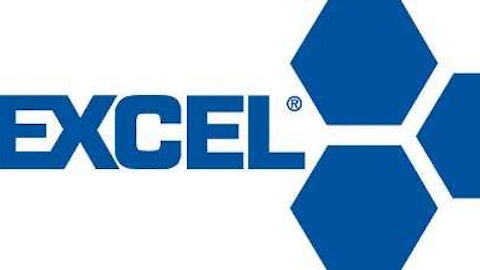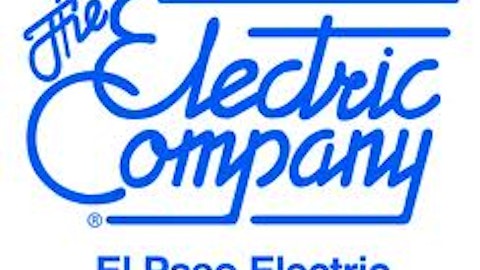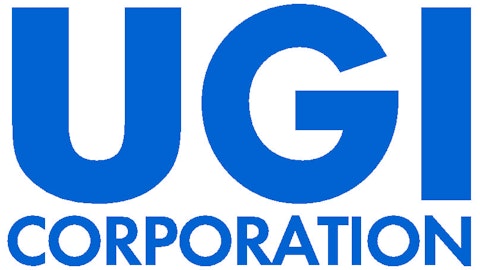M&A advisors are getting richer as more and more utility companies consolidate. recently announced that it was going to buyout, making a $5.6 billion dollar bet on a rebound in Nevada’s economy. Nevada’s economy got hammered during the recession with unemployment going up over 12% and its housing bubble popping.
Now Nevada has an unemployment rate of 9.6% which still is the highest in the United States, but Berkshire is betting that will continue to go down. As the economy rebounds, demand for electricity and natural gas heating will increase, boosting profits. Berkshire’s acquisition should enable it to continue to grow in the utility market, and meaningfully grow its book value.
Berkshire had $49 billion cash on hand which wasn’t making shareholders any richer. Using that money to grow the business is far more efficient than having it sit in a bunch of very conservative low yielding investments. Buying out NV Energy (NYSE:NVE) was a good idea for two reasons: One, because even after the 23% premium, it was trading at a book value of 1.56, less than the 1.67 industry average. Second, it will allow Berkshire to grow at a faster rate and will add more EPS to Berkshire, increasing its value.
The industry has been going through a period of consolidation over the past few years. Last year Exelon Corporation (NYSE:EXC) bought out Constellation Energy for $8 billion and NRG Energy Inc (NYSE:NRG) bought out GenOn Energy for $1.7 billion. Berkshire tried to buy Constellation Energy back in 2008, but the deal didn’t go through.
Maybe future consolidation is the future of energy and utility companies. TECO Energy, Inc. (NYSE:TE), which has a market cap of $3.8 billion, and recently bought smaller competitor New Mexico Gas Company for $950 million ($750 million for the company, $200 million for the debt,) could be a target.
TECO Energy, Inc. (NYSE:TE) would be a perfect candidate to be bought out because it is far smaller than the other players such as MidAmerican Energy, Berkshire’s subsidiary in the utility market with $66 billion in assets. TECO Energy, Inc. (NYSE:TE) also has almost $3 billion in debt, but a company like MidAmerican could refinance that debt at a lower rate and move into the Florida market easily.
TECO Energy, Inc. (NYSE:TE) has 687,000 customers and operates largely in the Florida market, which has seen unemployment drop significantly and a strong rebound in home prices. Florida’s unemployment rate is at 7.2%, below the national average (7.5%,) and has gone down by 0.8% over the past 6 months.
TECO Energy, Inc. (NYSE:TE) is buying New Mexico Gas to grow its bottom line, move into a new market, and diversify into natural gas. TECO Energy, Inc. (NYSE:TE) has purchased other gas companies like West Florida Gas and thinks it can repeat the same success with New Mexico Gas. TECO is trading at a premium on a book valuation to NV Energy with a price to book of 1.67 compared to 1.56 for NV Energy (which is after the 23% premium).
Every industry goes through a period of consolidation at some time or another, and valuations of some of the smaller players increases. Consolidation can lead to premiums in the smaller players as speculation drives up the value of the stock.
Black Hills Corp (NYSE:BKH) is another company that is small enough to be purchased by a bigger player. Black Hills Corp (NYSE:BKH) is a utility company that offers both electricity and natural gas to its customers in Colorado, Montana, South Dakota, and Wyoming. With a book value of $2.1 billion (and debt of $1.27 billion) with a book ratio of 1.7, it is trading in line with industry valuations.
Utilities aren’t able to grow much unless they buy up other players and become bigger entities. Black Hills Corp (NYSE:BKH) offers 6% long term growth and an area of operation undergoing an economic boom right now. In the area where Black Hills Corp (NYSE:BKH) operates there is a lot of potential for growth, because parts of Montana and South Dakota will start seeing more oil activity as land in the Bakken (primarily North Dakota) gets more and more expensive, pushing the smaller players to seek cheaper land elsewhere.
TECO and Black Hills
TECO and Black Hills Corp (NYSE:BKH) are both interesting investments for long term dividend investors. TECO pays out a whopping 5% yield, which would provide you a decent return even if the stock didn’t move very much. TECO is projected to grow its EPS by 3% in the long term, but with the recent acquisition, 4-5% growth is foreseeable in the near future. With a PE of 15.9 this stock is fairly valued, but the dividend yield is very attractive for a conservative portfolio.
Black Hills Corp (NYSE:BKH) pays out a 3.2% dividend yield and is projected to grow EPS by 6% over the next several years. Black Hills has a high PE ratio of 21.65 for a company growing at a mid single-digit rate, so I wouldn’t be a buyer at this level. If Black Hills falls enough so the PE ratio is in the 16-18 range then this stock would be a nice addition to a conservative dividend portfolio, and the possibility to be bought out adds upside.
Final thoughts
I think that the utility market will continue to consolidate as the smaller companies merge into the bigger ones to decrease fix costs and offer growth potential to the large firms, which is why utilities have high payout ratios. So to grow, utilities purchase up other firms that are trading at a discount and will offer steady growth with a good macro picture behind it, like NV Energy.
Financing for these big deals is dirt cheap right now, and if QE is going to be tapered, they might as well buy now while financing is still cheap. These buyouts will push up valuations, and Black Hills and TECO are both small enough and trading near industry valuations; they could possibly be purchased. They also pay out big dividends and offer low risk growth tried to bullish macro trends.
The article Rising Valuations in Utilities originally appeared on Fool.com.
Callum Turcan has no position in any stocks mentioned. The Motley Fool recommends Berkshire Hathaway. The Motley Fool owns shares of Berkshire Hathaway. Callum is a member of The Motley Fool Blog Network — entries represent the personal opinion of the blogger and are not formally edited.
Copyright © 1995 – 2013 The Motley Fool, LLC. All rights reserved. The Motley Fool has a disclosure policy.






